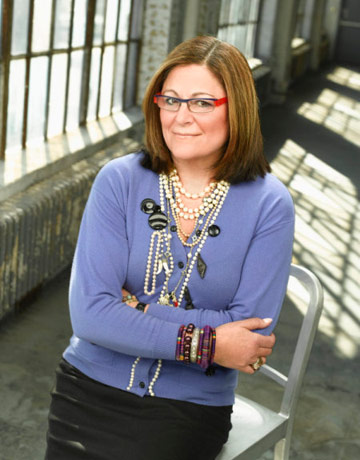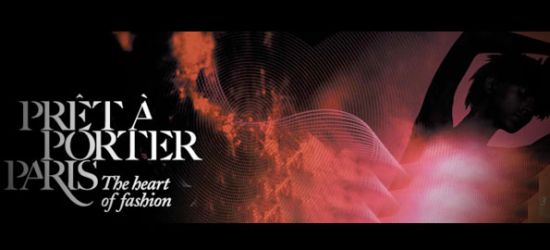 Ladybrille’s Contributor Maque Degorgeous has been at the AFI Africa Fashion Week South Africa shows all week long, June 30th-July 5th, 2010. He also attended the fashion seminar which included Fern Mallis, founder of (Mercedes-Benz) New York Fashion Week, and designer Deola Sagoe. Here are his notes from what the duo had to say at the event. Also be sure to BUY our latest issue of Ladybrille Magazine Model Edition to read Degorgeous brilliant interview with Kenya’s Fashion/Modeling guru Tony Chirah.
Ladybrille’s Contributor Maque Degorgeous has been at the AFI Africa Fashion Week South Africa shows all week long, June 30th-July 5th, 2010. He also attended the fashion seminar which included Fern Mallis, founder of (Mercedes-Benz) New York Fashion Week, and designer Deola Sagoe. Here are his notes from what the duo had to say at the event. Also be sure to BUY our latest issue of Ladybrille Magazine Model Edition to read Degorgeous brilliant interview with Kenya’s Fashion/Modeling guru Tony Chirah.
_____________________________________________________
Do you remember how Brooke Logan-Forrester (The bold and the beautiful – you know very well you’ve seen more than one episode) came to own 54% of Forrester creations? Well, let me refresh your memory: Brooke is a qualified lab technician of sorts. She was initially employed by the Forrester family to work in their lab to improve the quality of their fabrics/yarns or whatever it was until she came up with a fabric that the Forrester could not claim to be theirs. When they did and stole that from her, she sued the company and became a major share-holder of Forrester Creations. This, though fictional, shows directly how important fabrics are in Fashion – 54% and more important!
This was the point Deola Sagoe made at the fashion seminars. Much earlier on in her fashion career, she struggled to find genuine African fabric until she came across fabrics which were generally accepted African material; but later learned that some of these fabrics are really manufactured in Holland and sold in Africa. [S]o what’s happening in Africa?
- When Deola first entered the fashion arena on an international scale, she was invited to show at New York fashion week where she showcased a collection that got tongues wagging about its beauty but, in her own words, admits that she learned from that experience that beauty is not business. It goes beyond that! Business skills should also be a priority if fashion houses want to survive.
- Some of the complaints noted about African brands is that the quality of clothes are not to the standard of some of the international houses (including some of the fabrics used) and the high import duty charges, which presents a viable solution to some problems, limits the availability of such fabrics to reach our shores – which raises an eyebrow with me. . . is our government conspiring against the success of South Africa/Africa’s fashion labels? For instance, the Indian Government, through their textiles industry, is directly involved in their fashion week and not just as a meek sponsor. They ensure that there is enough publicity for their fashion weeks and the fabrics used are sourced from their own country where people are adequately trained to manufacture fabrics. Where is Africa when the world is breathing?
- The role of the media also got a mention. Their involvement is crucial in allowing the masses to know about fashion brands and the spectrum of clothes available to them. A relationship between media, stockists/retailers and fashion brands also needs to be garnered, monitored and nurtured into a functional relationship. Side note: I am glad bloggers are also acknowledged as playing a role in aiding PR efforts – it shows progress but South African media needs a little kick in the right direction but that’s talk for another day.
- Fern Mallis, founder of New York Fashion Week, found that Africa has immense talent but we lack some vital ingredients to allow our designers to bloom into global brands. Leading shopping centers, including Sandton City and Nelson Mandela Square (Johannesburg) are busy making ridiculously priced space per metre square available to international fashion houses with Salvatore Ferragamo joining well established Louis Vuitton, Gucci, Fendi, Christian Lacroix; while our locally brewed fashion houses cannot imagine making any profit should they manage to get space to sell there. This mediocrity, consequently, fuels the lust that consumers have for international brands – building towards “global blending” (versus global branding).
- Some of South Africa and Africa’s problems that do not aid in this struggle are due to a lack of a national fashion council, which most countries that host a fashion week have. This fashion council will not only have a register of the fashion brands/suppliers of fashion-related items, but regulates how the fashion world operates (and taking note of quality) AND acts as a platform of communication between fashion, government and consumer – which will perhaps be a great start to try to loosen the fabrics importing duties, hike-up small unknown communities that have technical and working knowledge of fabrics (yarns and threads)- they exist and Deola could bear testimony to that – and other such problems facing local fashion brands.
- Let’s also face facts: 5 BIG fashion weeks, in South Africa, per year is also ridiculous. I love attending fashion week but wouldn’t one or two (if we still want to subscribe to “fall collection” and “spring summer” mentality when we all know that most fashion labels make money from spring-summer) fashion weeks suffice?
These are just some of the challenges facing the fashion industry and I am glad that they are being addressed and I applaud African Fashion International for taking this giant leap.
~by Maque Degorgeous
~Photocredit: Harper’s Bazaar
Founded in 2007, Ladybrille® Magazine is a California based pioneer digital publication demystifying the image of Africans in the west through contemporary African fashion and celebrating the brilliant woman in business and leadership, with an emphasis on the African woman in the diaspora. Our coverage includes stories on capital, access to markets, expertise, hiring and retention, sales, marketing, and promotions.



Very interesting points brought up.
We all know that there is talent among African designers, but the industry is still very much at its infancy stage.
Now that some of the problems have been identified, I'm wondering who will take up the responsibility of cleaning things up and ensuring that the industry is sustainable in the long term.
I am a fashion enthusiast and also business oriented.
Instead of just offering my opinions, I would very much like to be part of the change going forward.
Please Uduak, if you know of developments in that direction, please let me know.
Very much appreciated!
Rolake